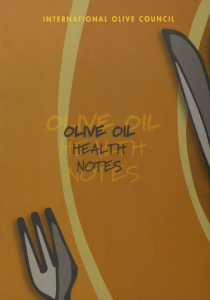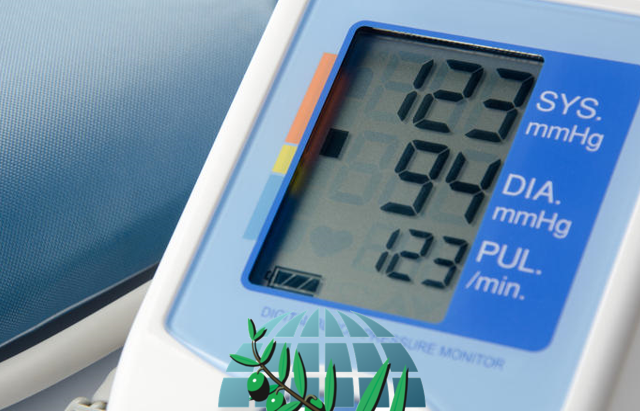High blood pressure is known as arterial hypertension and is considered to occur when blood pressure readings are constantly over 140/90 mmHg. High blood pressure is one of the chief coronary risk factors in the development of arteriosclerosis. Along with high blood cholesterol, cigarette smoking, obesity and diabetes, it is one of the main health problems of the developed world. Like other risk factors, lifestyle can contribute to high blood pressure.
One in every four adults is hypertensive. This increases the risk of early death because of the damage to the body’s arteries, especially the arteries that supply blood to the heart, kidneys, brain and eyes.
It has not yet been clearly established what elements of the Mediterranean diet are responsible for its effects in reducing blood pressure. It has been demonstrated, however, that the addition of extra virgin olive oil to a diet that is not changed in any other way has a clear lowering effect on blood pressure, which seems to be specific to this oil. Regular consumption of extra virgin olive oil decreases both systolic (maximum) and diastolic (minimum) blood pressure.
 There is recent evidence that when olive oil is consumed the daily dose of drugs needed to control blood pressure in hypertensive patients can be decreased, possibly because of a reduction in nitric acid caused by polyphenols.
There is recent evidence that when olive oil is consumed the daily dose of drugs needed to control blood pressure in hypertensive patients can be decreased, possibly because of a reduction in nitric acid caused by polyphenols.
Further information are available on this link and you can also download as free this book from the IOC’s website:
https://www.internationaloliveoil.org/product/olive-oil-health-notes/









